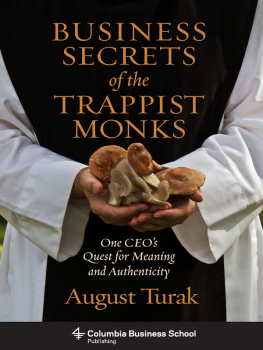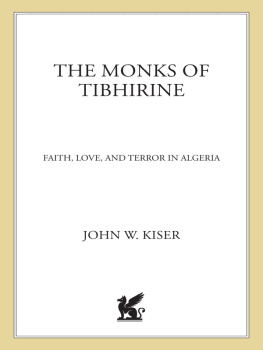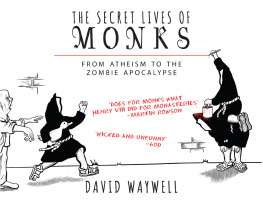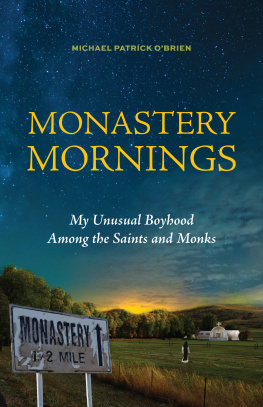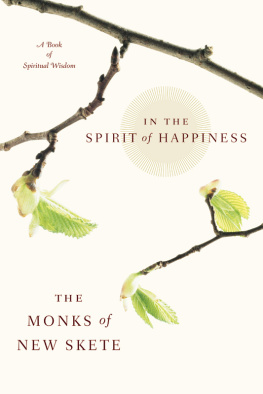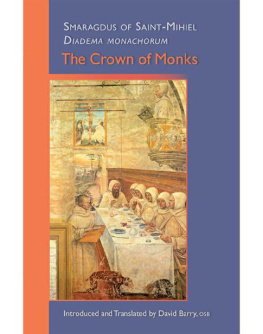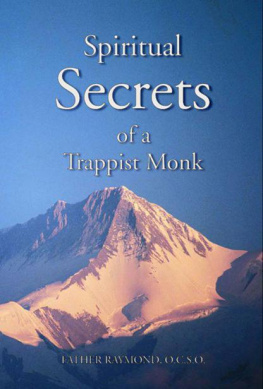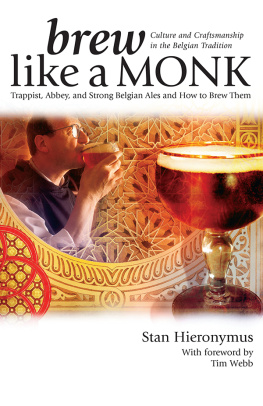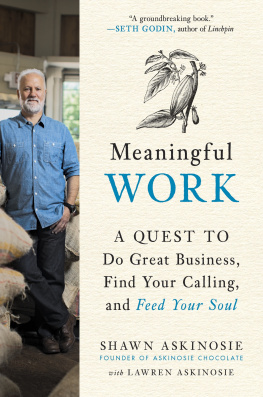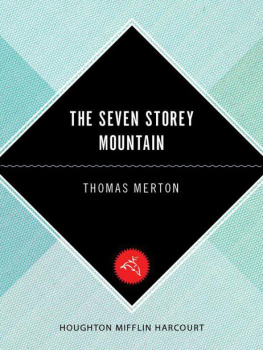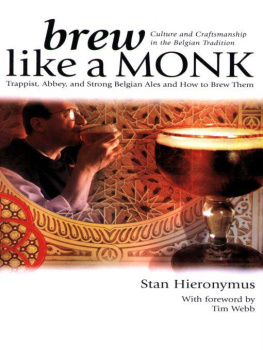
LOCATED JUST OUTSIDE Charleston, South Carolina, the 3,132 oak-studded acres that make up Our Lady of Mepkin Abbey roll gently toward the Atlantic Ocean. Early each morning except Sunday, right after the fourth daily monastic service, Terce, Id borrow a bicycle from the monasterys pool and, surrounded by four or five Trappist monks and their wind-whipped habits, Id pedal off for Mepkin Abbeys eggery, or grading house. With the rising sun shimmering off the Cooper River, my mile-long bike ride through fragrant gardens, moss-strewn live oaks, and cool salt air would just about lift the last vestige of drowsiness left over from rising for Vigils at three oclock in the morning. At the grading house, I would join Father Malachy at the end of the line just in time to watch Brother Nick flip the switch that brought the clattering conveyor to life. Soon the recently harvested eggs from 40,000 of Brother Josephs pampered poultry would be snaking their way around the cavernous concrete-block building. At stations along the slowly moving conveyor, the eggs were cleaned, checked for imperfections, graded from small to jumbo, put into cartons, and packed into large cardboard crates on their way to the shelves of local grocery stores. I liked to think they were whisked on their way with a blessing in every box, but when I suggested embossing each carton with this motto to Mepkins business manager, Father Stan, he only smiled and gently rolled his eyes.
And as I worked, I often found myself absently wondering how Father Malachy supernaturally managed to beat me to work every day.
Father Malachy was a bearded, slight, and slightly stooped monk well into his eighties. His blue eyes were gentle, and the thick blue veins lacing his delicate hands were perfectly suited to hands that had spent the better part of a lifetime clasped in prayer. My job was packing the cartons of eggs into boxes as they spat off the line, and day after day Father Malachy unfolded, shaped, and stacked the large cardboard crates that I busily stuffed and shoved into the cooler. Despite his diligence, patience, and prayer-worn hands, as we became friendly, I saw only a simple man and simple monk engaged in a simple task.
One day I jokingly mentioned that he always had two helpings of ice cream whenever it was served in the refectory. I used to eat three, he whispered conspiratorially. But the abbot took me aside and said, Father Malachy, do you think a man your age should be eating so much ice cream? Now I only eat two.
Then, on another day, Malachy mentioned that several years earlier, someone had donated to the abbey a big box of theological tomes written in French. Calling Malachy to his office, the abbot asked him to write English summaries of these books for the library.
Well, Father Malachy said softly, Francis thought I spoke French, but I didnt. But hes so busy, I didnt bring it up. I just stayed up late for a few months, taught myself French, read the books, and wrote the summaries. Then he humbly returned to his boxes, leaving me slack jawed with envy and abject awe.
Little by little I found out many not-so-simple things about this simple man. I learned that when Our Lady of Mepkin found herself short of priests, Malachy mastered all the intellectual requirements for the priesthood on his own, and in short order, without ever leaving the monastery. I discovered that Father Malachy was a favorite confessor for the other monks because of his keen insights into the human heart. And when neither the abbot nor Mepkins amazing cantor and Irish tenor, Father Aelred, were present at one of the monasterys eight daily services, it was the musically self-taught Father Malachy with his pitch pipe who led the community in hymns and the chanting of the psalms. As more and more such revelations seeped out over the years, my awe and affection for this humble man grew apace.
Then one day a phone call relayed the news that Father Malachy was dead. Racing to the monastery, I arrived barely in time for the funeral. During his eulogy Abbot Francis told us that only ten days previously, Father Malachy, complaining of pain, had been taken to the hospital for tests. He was riddled with cancer, and it fell to Francis to convey the news that there was no hope and very little time left. But when Francis told Father Malachy he was dying, Father Malachy didnt even blink. He just leaned over from his hospital bed, stroked Dom Francis on the arm, and, with a gentle smile, softly said, Oh, thats all right. Unable to continue his eulogy, Francis broke down at the altar.
As Mass ended Father Stan whispered that the brothers wanted me to carry the crucifix in Father Malachys funeral procession to the cemetery. The coffin remained open, and when we arrived, a white handkerchief was pinned to his habit to cover Father Malachys face. Then his body was lifted by straps from the coffin and slowly lowered into his coffinless grave. Prayers were said, and one by one each of us sprinkled a handful of monastic soil into the grave.
As the monastic community slowly dispersed, I found myself walking with Brother Robert. When it was time to go our separate ways, I told him how much I loved Father Malachy and admired the heroic way he had faced his own deathcomforting someone else instead of seeking comfort for himself. Brother Robert merely smiled, gave me a hug, and turned away. But after a few steps, the black cowl on his hooded head slowly turned. You know, he said, Everyone wants to die like a Trappist. No one wants to live like one.
MEPKIN ABBEY, once the estate of Henry and Clare Boothe Luce, is now a sanctuary for 25 or so Trappist monks living a life of contemplative prayer according to the arduous Rule of St. Benedict. The first time I drove through the gates, in 1996, the monasterys beauty, tranquility, and poignant silence instantly settled over me like a magical mist. It was as if Mepkins invisible gatekeeper had insisted on taking the weight of the world from my shoulders in lieu of a toll.
I have been returning to Mepkin ever since, sometimes for months at a time. As a monastic guest, I wear a gray habit and temporarily live the life of a Trappist monk. But while I go primarily for spiritual reasons, as a businessman and entrepreneur, I am fascinated by a worldly aspect of the monastic life. Mepkin and other monasteries throughout the world run highly successful businesses, and over the years I have found myself coming back again and again to some basic questions about them.
How do a couple of dozen aged monks at Mepkin, working only part time and largely in silence, achieve such amazing business success? How does Mepkin Abbey inspire ordinary people such as Father Malachy to achieve such extraordinary results? Why have monastic businesses thrived for more than 1,500 years when modern corporate success is so fleeting? How do monasteries produce and sell me, too commodities like fruitcakes, beer, eggs, mushrooms, and cheese with the kind of pricing power usually associated with dominant brands? Why does demand for these prosaic products consistently outstrip supply? How do monks compete so successfully in the open market while maintaining only the highest ethical standards and commitment to quality? And, most importantly, how can we apply these Trappist techniques to our secular corporations, nonprofits, families, and even our personal lives with equally explosive results?

